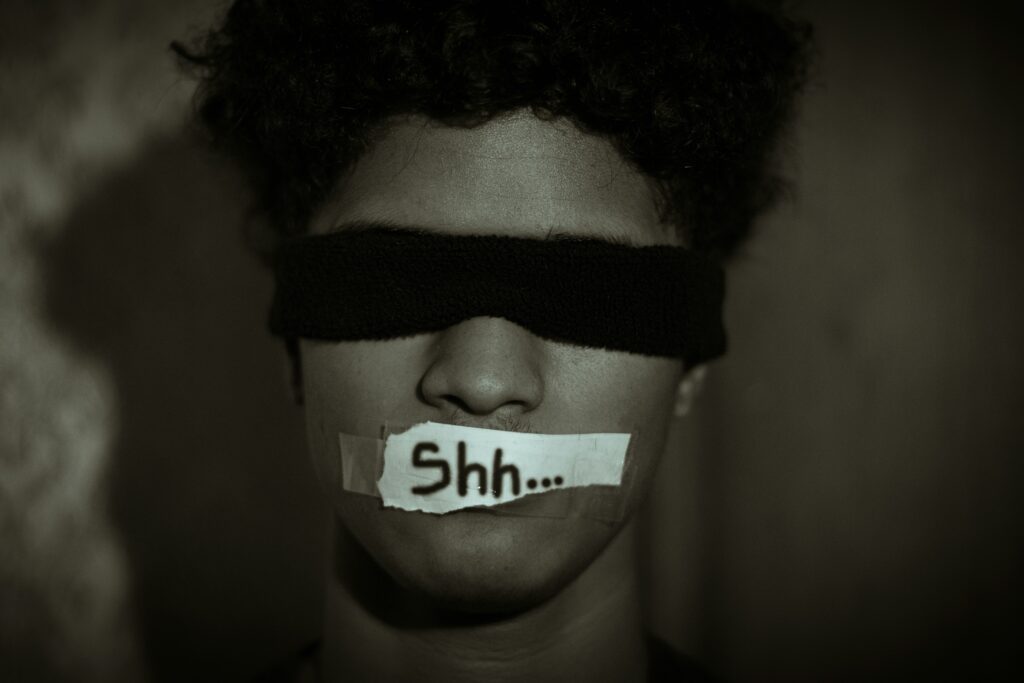May is Mental Health Awareness Month—and while conversations around mental health and therapy have grown, mental health stigma and shame still quietly linger in our lives. I see it in client sessions, in everyday conversations, and even within myself at times.
In last week’s post, I talked about how mental health deserves the same everyday care and attention as physical health—not just in crisis, but as a regular part of how we care for ourselves.
And yet, even when we know this, it can still feel hard to reach out for support. Often, that hesitation is rooted in the quiet, internalized messages we’ve absorbed over time about what and who therapy is really okay for.
We’ve come a long way in reducing stigma. There are more conversations, more resources, and more openness than ever before. But there is certainly still quiet judgment that keeps people from getting support—whether it shows up as shame, discomfort, or avoidance.

The Quiet Judgments We Inherit
Much of the mental health stigma we carry today began with the quiet, inherited messages we absorbed in childhood. In many families, mental health was either ignored or associated with shame and fear. Maybe therapy was only for “crazy” people. Maybe medication meant weakness. Maybe the word “depression” was never used, but you felt its presence anyway.
Like many people, mental health and therapy were not talked about much in my own family growing up, but there were definitely subtle undertones of fear and shame around these topics. As a psychology major, I remember wanting to go to my college counseling center in the 1990s but feeling too afraid to make an appointment. I worried what others would think, even the counselors.
Later, while in graduate school studying to become a therapist, I felt that same surprising caution when I needed support. I’ve since learned I wasn’t alone. Many therapists I’ve worked with carry internalized judgments about seeking help—as if we should somehow be “beyond” that or at least should not let other people see if we need help.
But we’re all human. And the truth is, the more we recognize and own these subtle, inherited biases, the more compassion we gain—for ourselves and for everyone else. That’s how the stigma starts to break down: not just through awareness campaigns, but through deep personal honesty and unlearning.
Healing isn’t just for those in crisis. It’s for all of us—and every time we own our inner struggles, the more permission we give others to do the same.
What Messages About Mental Health Are You Still Carrying?
What did you learn about mental health growing up? What messages did you absorb in your childhood, community, or culture about mental health?
Even now, many adults carry internalized stigma without realizing it. It influences how we think about therapy, how we view others’ struggles, and whether we allow ourselves to seek help.
I recently spoke with some teenage boys about mental health awareness. They told me it’s often discussed in school now and they’re often “forced to sit through” talks on mental health, but often in ways that feel superficial and that oversimplify something deeply personal and complex. A few said they know friends who’ve been to therapy, but those friends rarely talk about it. “It’s probably embarrassing,” one guessed.

That sentiment isn’t limited to teens. Even with better messaging, personal vulnerability takes time to catch up. And yet, I see encouraging signs of change—this younger generation is talking about anxiety, trauma, and emotional regulation in ways that are honest and courageous. I still remember a few years ago, hearing my then 14-year-old daughter talk about boundaries in her friendships—and I was struck. At her age, I had never even heard the word boundaries in that context.
Is Mental Health Stigma Still Showing Up in Your Life?
Mental health stigma doesn’t always look like outright judgment. It can sound like:
- “Why would they need therapy?”
- “They should just tough it out.”
- “It’s not that bad.”
Or it can feel like:
- Hesitating to get support
- Feeling shame after a therapy session
- Staying silent about a mental health diagnosis
Most of us carry internalized stories that affect how we view mental health. And those quiet judgments can keep us—or someone we love—from getting support.
Reflection Questions:
- When you hear that someone is in therapy, what’s your gut reaction?
- What assumptions do you make about people with depression, anxiety, or bipolar disorder? Are there ways you unintentionally judge them?
- How do you feel about psychiatric medication?
- Have you ever hesitated to seek support because of how it might be perceived?
- When someone talks about their mental health, how do you respond—internally and externally?
- What messages about mental health did you receive growing up? Which ones are you still carrying?
Compassion Creates Change

There’s no shame in having bias—it’s human. But there’s power in becoming aware of it. That awareness can shift how we show up for ourselves, our friends, our partners, our kids.
Here’s something worth reflecting on: there are people in your life who are navigating depression and anxiety—and they’re also showing up for themselves with incredible courage. They’re healing. They’re growing. And often, they’re making more intentional progress than those who haven’t yet turned toward their own inner struggles.
What if we honored that kind of work, rather than judged it? Let’s keep normalizing support. Let’s get curious about the judgments we’ve inherited. And let’s grow—together.
Need Support?

Missed the first post in this series? Start here → Mental Health Deserves the Same Everyday Care as Physical Health.
If you’re ready to challenge the mental health stigma that’s held you back, I offer a compassionate space for deep-feeling, intuitive people who want to go beyond surface-level support.
Click here to learn more and schedule a free consultation.